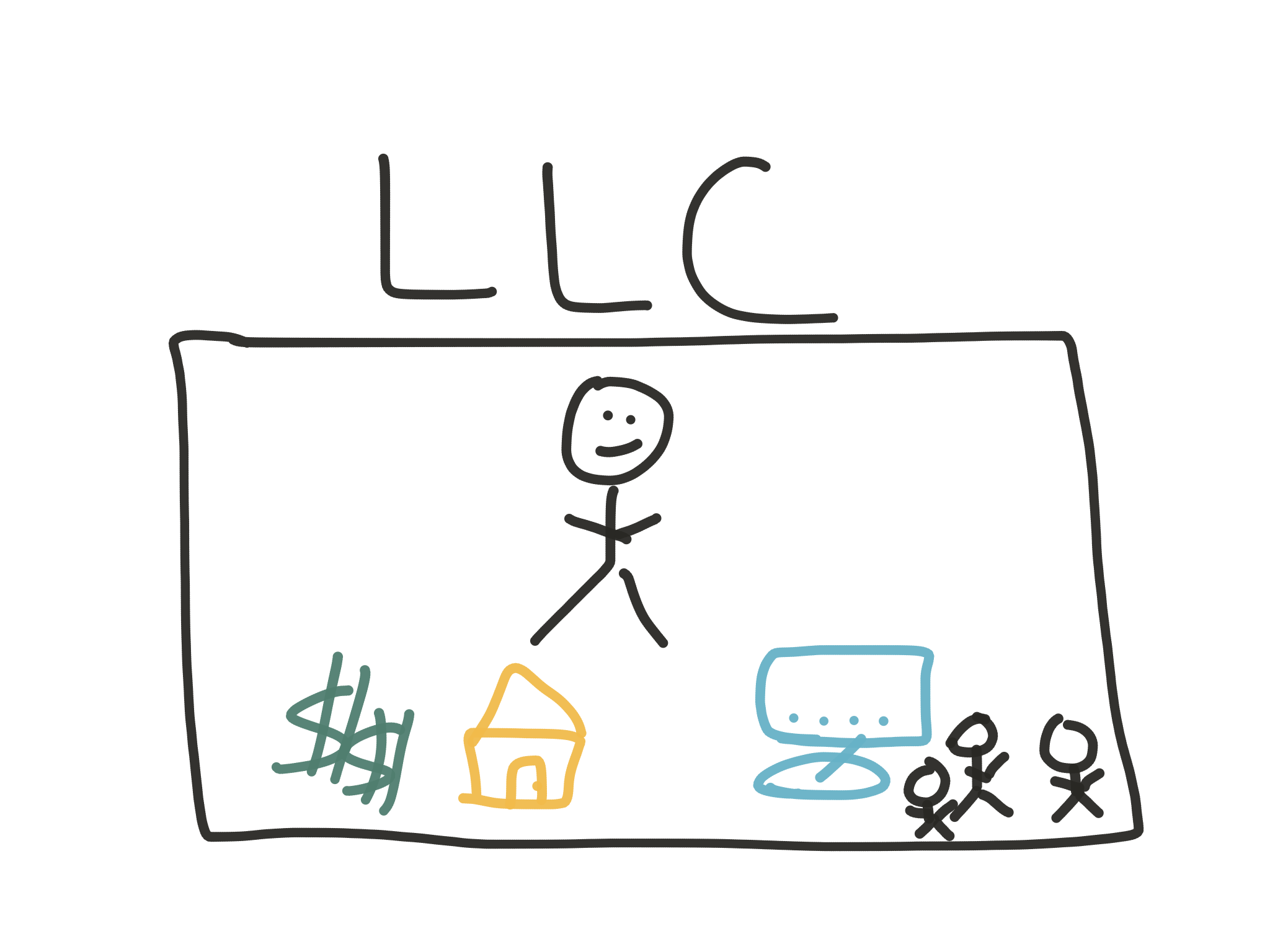What is an LLC, and Why Use One for Your Small Business?
In this article, I’ll be talking about LLCs, and why you would want to use an LLC for your small business. Please be aware that a full discussion of all the pros and cons of using an LLC is well beyond the scope of this article.
When you form an entity for your business, you have a choice: generally, your business can be in a corporation, which can be a C corp or an S corp. Or your entity can be in a limited partnership, a limited liability partnership, or an LLC.
If you’ve been doing your research, you will find a lot of strong opinions and conflicting information about choosing an LLC. My approach is . . . Ready? . . . Use an LLC unless you have to use something else.
What’s an LLC? An LLC is created when you file the required documents with the designated officer of the state. In California, where my practice is located, that filing is with the California Secretary of State. In Delaware, it’s with the Division of Corporations.
An LLC is required to have at least one member and one manager. The members are the owners, the managers . . . well, . . . . they manage. The members and managers can then appoint, if they want to, other people (or themselves), to be directors and officers to set company policy and run the day-to-day operations. That’s one virtue of an LLC – there’s great flexibility in how it is managed and directed. Members (the owners) can be individuals, or they can be other entities, like another LLC, or a corporation; that’s another advantage to using an LLC – it can be owned by almost anyone or anything.
Another consideration: LLCs do not have as much state law paperwork requirements as other entities; that, in and of itself, might be reason enough to use LLC, since noncompliance with state law paperwork can expose you to personal liability, which defeats the purpose of having an entity for your business in the first place.
Next: In California, if you think your business is going to earn gross receipts over $250,000, then you may not want to use an LLC. California’s gross receipts tax on LLCs can really damage your bottom line.
Next: what does your business do? If your business is the kind that requires a license under California’s business and professions code, like a real estate agent, or an anesthesiologist, or a lawyer, then you can’t use an LLC for your liability protection. However, as of January 2011, contractors became exempt from this restriction.
Next: Is your business going to seek investors; does it anticipate growth? You may want to skip being an LLC, and head directly to corporate structure. More on that in another article. But if your business is small, and won’t be looking for investors, then this isn’t a concern. Plus, you can almost always invite friends and family to invest in your company through an LLC.
Next: Holding real estate? Use an LLC. It’s a tax thing, and that’s all you need to know right now.
Next, next, next. There are other considerations, mostly involving taxes. I’ve given you some of the primary considerations here.
So, in summary, use an LLC unless there’s a reason not to. They’re easier, making them cheaper, and they provide the same liability protection as a corporation.
Reading this means you’ve ready my disclaimer.


Leave A Comment